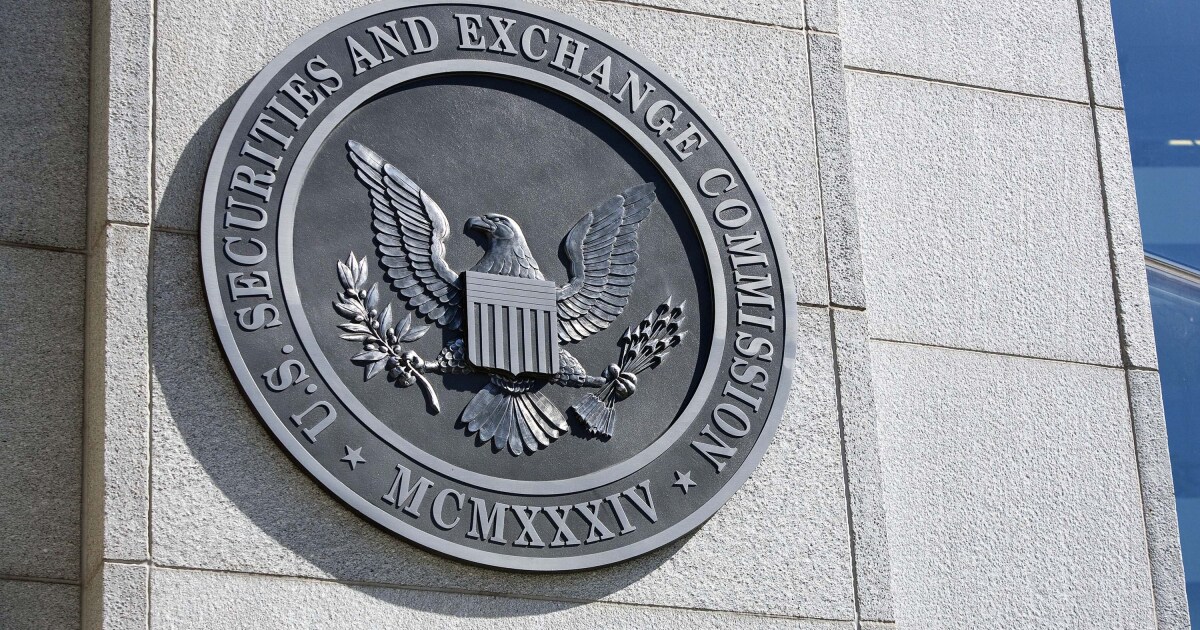The Securities and Exchange Commission is facing a lawsuit filed Friday by a group of financial industry trade associations over its recently approved private fund advisor rule, which would require more disclosures of fees and expenses and annual audited financial statements of private equity and hedge funds.
The Managed Funds Association, a trade association representing the global alternative asset management industry, joined the National Association of Private Fund Managers, the National Venture Capital Association, the American Investment Council, the Alternative Investment Management Association, and Loan Syndications & Trading Association in filing a lawsuit in the U.S. Court of Appeals for the Fifth Circuit against the SEC challenging the recently adopted rule. The SEC approved the rule last week as a way to regulate the hedge fund and private equity industry more closely and require more disclosures and audited financial statements of each of their funds (see story).
The MFA had previously threatened a lawsuit ahead of the final rule and said last week it was assessing its next moves, which could result in potential litigation (see story). The lawsuit indicates the industry is prepared to fight the SEC.

Joshua Roberts/Bloomberg
“The SEC has overstepped its statutory authority and core legislative mandate, leaving us no choice but to litigate,” said MFA president and CEO Bryan Corbett in a statement Friday. “The Private Fund Adviser rule will harm investors, fund managers, and markets by increasing costs, undermining competition, and reducing investment opportunities for pensions, foundations, and endowments.”
The lawsuit claims the rule will lead to increased fees, less competition and less choice for institutional investors, including pensions, foundations and endowments. The rule, they contend, would needlessly limit the right of private fund advisors and their investors to tailor their relationships and interactions; enact overreaching prohibitions and restrictions on certain private fund adviser activities; and impose onerous, costly disclosure requirements and administrative obligations upon private fund advisers.
The petitioners believe the rule exceeds the SEC’s authority under the Investment Advisers Act of 1940 and other laws, and runs counter to the SEC’s stated mission to protect investors, maintain fair, orderly, and efficient markets, and facilitate capital formation.
However, the lawsuit may take a long time to work its way through the courts, and for now private funds and their advisors will need to comply. Many funds have already been preparing to comply ever since the SEC released a proposed version of the rule.
“A lot of things in terms of disclosures and are things I think funds have been assessing, especially as this rule has been out there, at least in draft form,” said Richard Lomuscio, co-chair of securities and financial services litigation at the law firm Tarter Krinsky & Drogin in New York. “People have been thinking about how to actually apply it.”
He noted that the draft rule was already modified to deal with some of the requests from the financial industry before it was finalized. Nevertheless, the financial industry contends that sophisticated investors are mostly involved with the private equity and hedge fund industries, and not the traditional retail investors that the SEC has traditionally tried to protect.
Many funds have already been providing audited financial statements to investors as part of the SEC’s custody rule, but the new requirements could add to the costs.
“A lot of it is being done in connection with the custody rule,” said Lomuscio. “But it is an additional layer of requirements and consideration that is going to increase expense and costs for compliance.”
It may take a while for the funds to comply with the new requirements, which don’t take effect immediately.
“Different parts of the rule have different implementation periods,” said Lomuscio. “I think they take anywhere from 12 to 18 months, but regardless of the lawsuits that are pending, funds will need to be prepared to address and take steps to be prepared to address the rule given as it has become final.”
More accounting firms may decide to get involved in this area. “I think it’s going to definitely be something accounting firms will need to develop to the extent they haven’t already developed expertise because the private fund area is a pretty large and growing investment area,” said Lomuscio. “Accounting firms obviously will need to be on top of this because it is going to be both labor intensive and also very nuanced in terms of how some of the rules are applied.”




